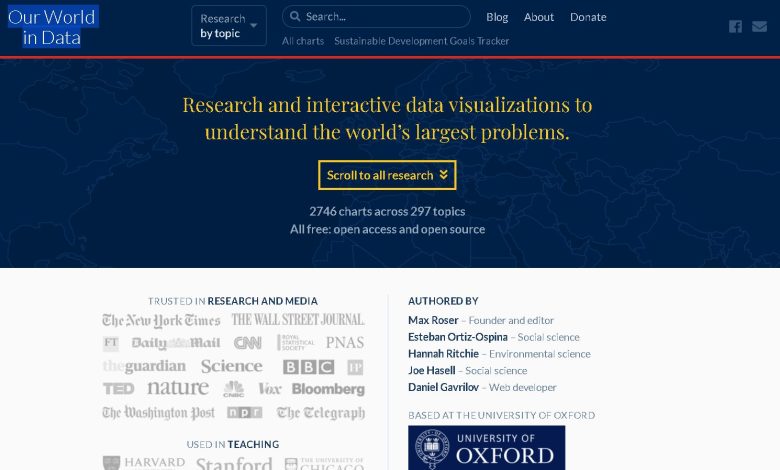Scientific web editor | 5 irresistible qualities that will make you want to hire him

Doctor, professor or researcher, you want to develop your image as an expert on the Web, but still hesitate to delegate the writing of your digital content to a professional? The popularization of science for the Web cannot be improvised. Fusion between fluency for words and in-depth knowledge of the world of science, the scientific web editor puts his pen as a digital writer at your service. His seasoned skills will enhance your research and your news. Here are five good reasons to hire him to promote your knowledge and boost your online presence.
1. Web chameleon, the digital writer masters the keys to natural referencing
A scientific web editor who masters SEO techniques (for search engine optimization) offers you the possibility of increasing the number of visitors to your site, and thus extending your authority on the Internet. Natural referencing (or SEO) is a set of good practices that make it possible to go up in the first results of Google.
For this, the SEO web editor writes optimized articles for his clients that contain:
- punchy titles;
- rich keywords;
- a clear HTML structure, etc.
Their content appeals to both readers and search engine algorithms. Thanks to this know-how, it effectively boosts the organic traffic of your website while captivating its readership.
The goal of the maneuver is to be well referenced to appear on the first page of Google. Indeed, we must not forget that being visible on the Web is essential to increase its image as a specialist. More than 90% of Internet users who type a query into the search bar will go no further than the first page to find the information.
Optimized writing is therefore a key element not to be overlooked when building your digital strategy. However, the work of researchers, more often published in academic journals than on the Net, is sometimes relegated to the depths of the SERP. Hiring a scientific writer trained in SEO techniques will allow you to enhance your scientific communications and boost your e-reputation as an expert.
2. Rigorous, the scientific web editor mobilizes reliable sources
The scientific editor is familiar with the world of science and the academic world. He has sometimes had research experience, even obtained a doctorate in his chosen field. Regardless of his specialty, rigorous research methods for reliable information have no secrets for him.
The Internet is vast and fake news circulates abundantly. A bridge between the digital universe and that of science, the web editor knows how to sort and select trusted data. For this, he mobilizes primary sources where the information has not been retouched or recycled.
The web editor has a wide panel to find reliable information:
- official government sites;
- scientific studies;
- reports;
- polling organizations (INSEE, etc.).
His specialized skills allow him to quickly analyze the web pages he consults to collect the appropriate data.
3. Curious and agile, he adapts his SEO pen to all disciplines
Knowing how to adapt your writing to the “persona” (target audience) is an essential quality for writing on the Web. Indeed, an Internet user spends on average between 30 and 60 seconds on a page, it is necessary to capture his attention and quickly give him the information he is looking for. Consumption is therefore completely different from that of paper media.
The digital writer structures his text in a clear and methodical way. This way, the reader who usually scans the articles briefly with a distracted eye can find the essential information in no time. Of course, the common thread must adapt according to the ambitions of the page: the objectives are not the same if it is a blog article, an about page or a category page.
The added value of the writer of scientific articles is his great curiosity for the field of science and research. Combining the intuition of the scientific journalist and the pen of the Facebook blue tick verification service, it adapts as well to the humanities and social sciences as to more technical fields such as chemistry, astronomy or pharmaceuticals.
4. Meticulous, he masters academic language like the back of his hand
A website full of spelling or syntax errors not only tarnishes your e-reputation but scares away your readers. A high bounce rate (the visitor leaves the site quickly without accessing other content) is analyzed as a bad signal by Google. Its algorithms are getting smarter and smarter, and no longer let shoddy writing pass.
Professional in writing, the scientific web editor not only presents an irreproachable spelling, but he also masters academic language. He knows spelling rules and citation styles (APA, Harvard, etc.) at his fingertips. Endowed with sharp linguistic knowledge, he makes sure to always find the right word, without sacrificing meaning.
Curious and meticulous, he constantly updates his skills to perfect his analytical and synthesis skills. In addition, the web editor has the expertise required to captivate the reader and enhance your scientific communications. To this end, it mobilizes editorial techniques of storytelling and copywriting to invite the Internet user to stay longer on your website… and thus gain visibility.
5. Synthetic and analytical, he is an expert in the popularization of science for the web
Like a journalist or a researcher, the scientific web editor aims to transmit knowledge to the general public. Making a text accessible and understandable to as many people as possible is a difficult task. Indeed, it is not given to everyone to know how to explain in just a few lines the latest discovery in medicine or the appearance of a new exoplanet.
A doctor or a researcher communicates on his field as a specialist. More accustomed to exchanging with his peers than with the general public, a scientist sometimes has the expert syndrome: he overestimates the level of knowledge of his listener. A communication in a colloquium aims to inform colleagues about recent advances relating to a specific subject. Conversely, the publication of a blog article on a science news site aims to make the information accessible to an audience of neophytes: the goal is not the same.
It is important to find the right level of popularization, to explain without becoming simplistic. Thanks to his writing skills and his sense of synthesis, the scientific web editor is experienced in the art of reformulation. Actor in the transmission of knowledge, he knows how to choose the right word and the right level of simplification that he adapts according to the readership.
You now know the five irresistible qualities of the scientific web editor. Convinced to call on this reformulation expert to support you in your digital strategy? All you have to do is find the perfect profile. Finding a freelance scientific writer is not always easy in the disparate offer of the Web. Do you want to be sure to work with a premium web editor? Discover the profiles of qualified professionals on our website!
Apart from this, if you are interested to know more about improve your SEO on the Internet then visit our Al Tech category





